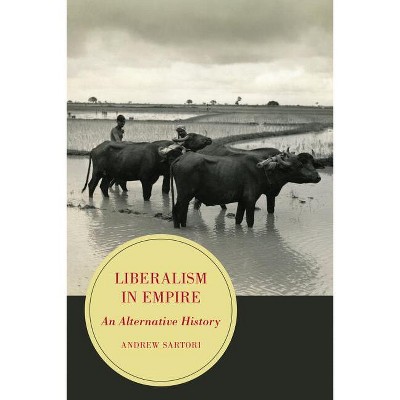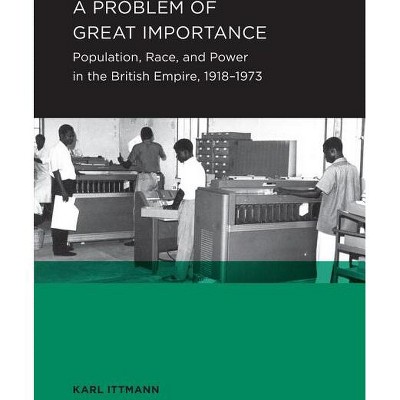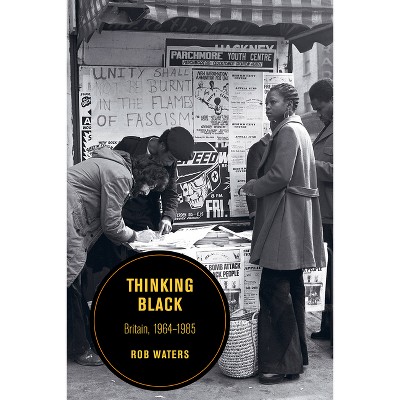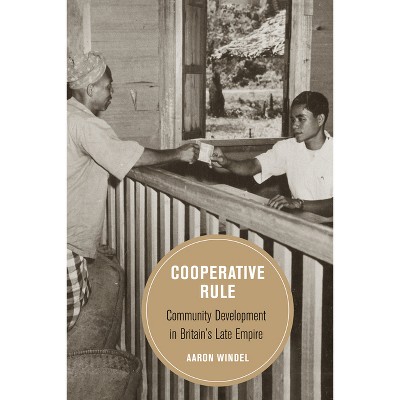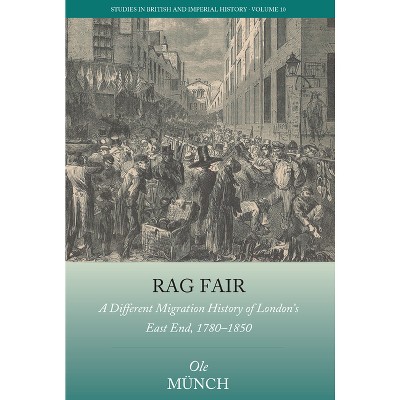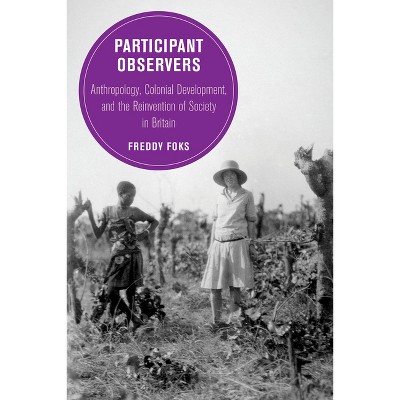Imperial Encore - (Berkeley British Studies) by Caroline Ritter (Paperback)

$34.95 when purchased online
Target Online store #3991
About this item
Highlights
- In the 1930s, British colonial officials introduced drama performances, broadcasting services, and publication bureaus into Africa under the rubric of colonial development.
- About the Author: Caroline Ritter is Assistant Professor of History at Texas State University.
- 276 Pages
- History, Europe
- Series Name: Berkeley British Studies
Description
About the Book
"In the 1930s, British colonial officials introduced broadcasting services, publication bureaus, and film units into Africa under the rubric of colonial development. They used radio, film, and mass-produced books to spread British values and the English language across the continent. This project proved remarkably resilient: well after the end of Britain's imperial rule, many of its cultural institutions remained in place. Through the 1960s and 1970s, African audiences continued to attend Shakespeare performances and to listen to the BBC, while African governments adopted English-language textbooks produced by metropolitan publishing houses. Imperial Encore traces British drama, broadcasting, and publishing in Africa between the 1930s and the 1980s--the half century spanning the end of British colonial rule and the outset of African national rule. Caroline Ritter shows how three major cultural institutions--the British Council, the BBC, and Oxford University Press--integrated their work with British imperial aims, and continued this project well after the end of formal British rule. Tracing these institutions and the media they produced through the tumultuous period of decolonization and its aftermath, Ritter offers the first account of the global footprint of British cultural imperialism"--Book Synopsis
In the 1930s, British colonial officials introduced drama performances, broadcasting services, and publication bureaus into Africa under the rubric of colonial development. They used theater, radio, and mass-produced books to spread British values and the English language across the continent. This project proved remarkably resilient: well after the end of Britain's imperial rule, many of its cultural institutions remained in place. Through the 1960s and 1970s, African audiences continued to attend Shakespeare performances and listen to the BBC, while African governments adopted English-language textbooks produced by metropolitan publishing houses. Imperial Encore traces British drama, broadcasting, and publishing in Africa between the 1930s and the 1980s--the half century spanning the end of British colonial rule and the outset of African national rule. Caroline Ritter shows how three major cultural institutions--the British Council, the BBC, and Oxford University Press--integrated their work with British imperial aims, and continued this project well after the end of formal British rule. Tracing these institutions and the media they produced through the tumultuous period of decolonization and its aftermath, Ritter offers the first account of the global footprint of British cultural imperialism.From the Back Cover
"More than any previous historian, Caroline Ritter lays bare the extent--and ambiguities--of the British cultural project in late colonial and postcolonial Africa. Through case studies of the BBC, British publishing, and the British Council, she shows how a British cultural imperialism underpinned by a common and enduring conviction in the value of British Culture, and, in more practical ways, by colonial development, intensified during decolonisation. As Ritter recounts in this rich and highly perceptive account, by adopting African actors, and absorbing postcolonial critiques to create a more inclusive form of Britishness, this cultural project evolved and flourished after the end of empire."--Sarah Stockwell, author of The British End of the British Empire "Imperial Encore, the product of patient and painstaking research in diverse archives and media in Britain and East and West Africa, asks a compelling question: what was the place of British culture in the African postcolony? As Ritter ably demonstrates, this is a story of ambivalence, about the mysteries of taste, and why we love the things we love. Offering a cacophony of British and African voices on the question of what constituted African (or, for that matter, British) culture, Ritter takes us from performances of Macbeth in Lagos to the scramble for African authors at Oxford University Press. In Ritter's hands, this is no simple or straightforward story of 'translation, ' but a much more complex project concerned with dynamics of cultural power that outlasted political colonial rule, and questions of how we assign value that are still with us today. Ritter's careful study poses bigger questions about the historical inequalities that structure acts of reading, seeing, and hearing."--Jordanna Bailkin, author of The Afterlife of Empire "In Imperial Encore, Ritter brings a fresh and dynamic approach to late-imperial and post-colonial cultural relationships between Britain and Africa. This book is beautifully written, full of rich and interesting material, based on painstaking archival research across many collections and countries. The focus on drama, publishing, and broadcasting takes the cultural products of empire and post-empire seriously and develops a nuanced and rich exploration of the tensions and opportunities in these media in this period. By tracking the story from the 1930s all the way to the 1980s, the book effectively highlights the continuity, as well as the sometimes dramatic change, inherent to the late colonial and post-colonial period. This book is a rigorous and innovative contribution to New Imperial History and the current flourishing field of decolonisation and British decolonising history."--Charlotte Lydia Riley, Lecturer in British Twentieth Century History, University of SouthamptonReview Quotes
"Imperial Encore is an important contribution to the growing scholarship on the afterlives of empire. . . .In lucid prose and with an eye to compelling detail, Ritter has revealed how Britain's cultural ambitions and institutional power did not simply survive the upheavals of the decolonization era, but thrived in its wake."-- "Journal of British Studie"
"Ritter's highly-readable study is particularly strong in drawing out specific moments, experiences and voices. . . .Imperial Encore highlights the integral, and ongoing, role of culture to the imperial project and illustrates why we must continue to interrogate those that control, utilise, and exploit these cultural forms today."-- "Cultural and Social History"
"Imperial Encore presents a deeply-researched and engaging narrative that actively enriches a subject that has for too long been pushed to the outside of imperial historiography."
-- "Twentieth Century British History"About the Author
Caroline Ritter is Assistant Professor of History at Texas State University.Dimensions (Overall): 8.9 Inches (H) x 5.9 Inches (W) x .7 Inches (D)
Weight: .85 Pounds
Suggested Age: 22 Years and Up
Number of Pages: 276
Genre: History
Sub-Genre: Europe
Series Title: Berkeley British Studies
Publisher: University of California Press
Theme: Great Britain, 20th Century
Format: Paperback
Author: Caroline Ritter
Language: English
Street Date: January 26, 2021
TCIN: 82971789
UPC: 9780520375949
Item Number (DPCI): 247-20-8295
Origin: Made in the USA or Imported
If the item details above aren’t accurate or complete, we want to know about it.
Shipping details
Estimated ship dimensions: 0.7 inches length x 5.9 inches width x 8.9 inches height
Estimated ship weight: 0.85 pounds
We regret that this item cannot be shipped to PO Boxes.
This item cannot be shipped to the following locations: American Samoa (see also separate entry under AS), Guam (see also separate entry under GU), Northern Mariana Islands, Puerto Rico (see also separate entry under PR), United States Minor Outlying Islands, Virgin Islands, U.S., APO/FPO
Return details
This item can be returned to any Target store or Target.com.
This item must be returned within 90 days of the date it was purchased in store, shipped, delivered by a Shipt shopper, or made ready for pickup.
See the return policy for complete information.
